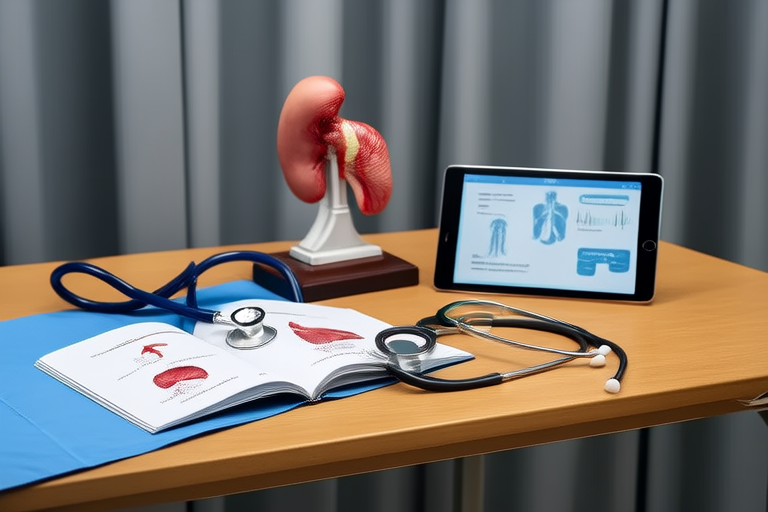Mastering Self-Check: A Guide to Recognizing Health Symptoms Early
The ability to recognize early signs of potential health issues is a crucial skill for anyone looking to maintain optimal health. Early detection of symptoms can often mean the difference between managing a condition effectively and facing more severe complications later on. This guide aims to equip you with knowledge about common symptoms across different body systems and practical steps for self-checks that can be performed at home. Additionally, we’ll discuss when it’s important to seek professional medical assistance and highlight the benefits of proactive health monitoring.
The Importance of Early Symptom Recognition
Early symptom recognition plays a vital role in preventing serious health problems. Many diseases, if caught early enough, can be treated more easily and have better outcomes. For instance, catching cancer in its earliest stages significantly improves survival rates. Similarly, cardiovascular conditions like heart attacks or strokes can sometimes be mitigated through timely intervention. By becoming familiar with your body and recognizing unusual changes, you empower yourself to take control of your health.
Common Symptoms Across Various Systems
Cardiovascular System
Symptoms related to the cardiovascular system include chest pain (angina), shortness of breath, dizziness, fainting spells, palpitations, and swelling in the legs. These could indicate heart disease, arrhythmias, or even heart failure. It’s essential to understand these signs and act promptly.
Respiratory System
Respiratory symptoms such as persistent coughing, wheezing, difficulty breathing, or frequent infections may suggest asthma, chronic obstructive pulmonary disease (COPD), pneumonia, or other lung disorders. Pay attention to changes in breathing patterns or frequency of illness.
Digestive System
Indigestion, bloating, constipation, diarrhea, nausea, vomiting, abdominal pain, and changes in bowel habits are common digestive symptoms. They might point towards gastrointestinal issues like irritable bowel syndrome (IBS), gastroesophageal reflux disease (GERD), or inflammatory bowel disease (IBD).
Nervous System
Headaches, dizziness, numbness, tingling sensations, muscle weakness, loss of coordination, and confusion are indicative of neurological problems. Conditions ranging from migraines to multiple sclerosis could be responsible for these symptoms.
Practical Tips for Self-Checks
Performing regular self-checks allows you to monitor your overall health and catch potential issues before they escalate. Here are some simple yet effective methods:
Blood Pressure Monitoring
Regular blood pressure checks using an at-home device can help detect hypertension early. Normal readings typically fall below 120/80 mmHg. If consistently higher numbers are noted, consult a healthcare provider.
Body Mass Index (BMI) Calculation
Maintaining a healthy weight reduces the risk of numerous health conditions. Calculate your BMI by dividing your weight in kilograms by your height in meters squared. Aim for a BMI within the range of 18.5 to 24.9.
Self-Breast Exams
Women should perform monthly breast exams to check for lumps, skin changes, or nipple discharge. Any unusual findings should prompt further investigation.
Eye Care
Annual eye examinations can prevent vision loss due to conditions like glaucoma, cataracts, and diabetic retinopathy. Regular visits to an optometrist ensure early diagnosis and treatment.
When to Seek Professional Medical Help
While self-checks provide valuable insights, certain symptoms warrant immediate medical attention:
- Fever above 103°F (39.4°C)
- Severe chest pain lasting longer than five minutes
- Difficulty breathing or swallowing
- Sudden severe headache
- Unexplained weight loss
- Swelling or redness around joints
- Chronic fatigue not relieved by rest
In cases where symptoms persist despite initial treatments or worsen over time, professional guidance becomes necessary.
The Benefits of Proactive Health Monitoring
Proactively monitoring one’s health offers several advantages:
Promotes Early Detection
Identifying health issues early enables quicker treatment and better management of chronic conditions.
Enhances Quality of Life
By addressing health concerns promptly, individuals can maintain their independence and enjoy a higher quality of life.
Reduces Healthcare Costs
Preventive measures and early interventions tend to be less expensive than treating advanced stages of diseases.
Encouraging Regular Check-Ups
Despite the benefits of self-checks, regular visits to healthcare professionals remain indispensable. Annual physical examinations allow doctors to conduct thorough assessments, screen for specific diseases, and offer personalized advice based on individual health profiles.
In conclusion, mastering self-check techniques empowers individuals to stay informed about their health status. By understanding typical symptoms associated with various bodily systems and performing routine self-assessments, people can identify potential problems early and take appropriate actions. Remember, while self-care is important, consulting healthcare providers regularly ensures comprehensive care and supports long-term wellness goals.










